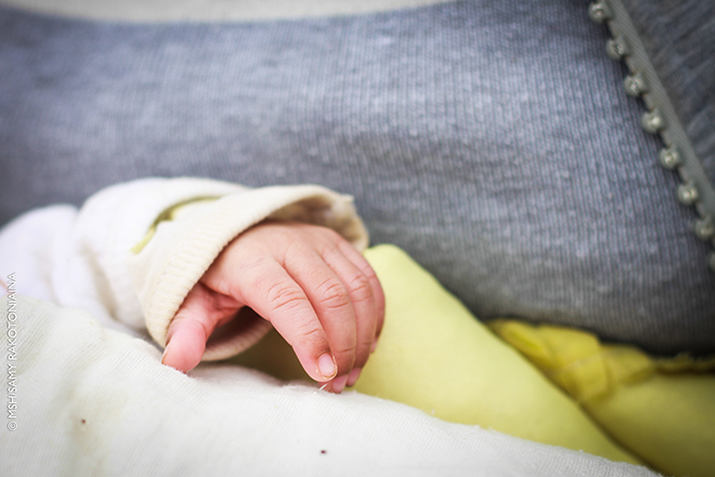From Health Worker to Patient: Preterm Care is a Responsibility for All
From Health Worker to Patient: Preterm Care is a Responsibility for All

“I look at my baby today, and what I see is the contributions of many. My family, health workers, my friends, and God – we made it!”
Beatrice Kadzakumanja
On November 17th, USAID’s Organized Network for Everyone’s (ONSE) Health Activity joined the global community to commemorate World Prematurity Day. This year’s theme, “Together for Babies Born Too Soon- Caring for the Future,” aims to increase awareness, reach, and engagement, including families and health workers, in the care of babies born prematurely. Beatrice, an ONSE staff member, shares her birth story.
Ten years following the birth of their first child, Beatrice and her husband were excitedly expecting a second baby. Little did they know that the pregnancy would bring complications, including high blood pressure (ie, severe pre-eclampsia), which forced Beatrice to deliver at 32 weeks in August 2019. “I drove to Good Hope Hospital in Lilongwe one day for a medical review, and once there, that’s when the doctor told me that my blood pressure was very high, and that I had no options but to deliver the baby [that day]. You can imagine the shock. I was alone. I had only brought a small handbag. I was not prepared. No nappies; nothing for the baby.”
Beatrice Kadzakumanja, a nurse-midwife for nearly 12 years, having worked mostly in maternity wards, was now the patient. “This time, I needed health providers to be there for me; I needed their encouragement. I appreciated their counseling. And although these were things I have told many families before, I needed to hear it now for myself, from those midwives and doctors there with me. I then felt comforted and prepared. I cannot encourage health workers enough: they need to be empathetic, especially to moms and families expecting or nursing preemies. It’s something that these families never expected, and they need support.”
Beatrice delivered Tayamika –which means, ‘we say thank you’ – via a cesarean section. “The first time I saw my baby, she was so tiny, weighing only 1700 g (3.7 pounds). She was in the neonatal nursery ward because she was having breathing problems. I cried, but I quickly remembered what the health workers had told me, and I chose to be strong for my baby. Health providers, my family, friends, colleagues; they all helped me to take care of Tayamika. They helped me feed her, change her nappies, and practice skin-to-skin care when she became stable.”
The health workers at Good Hope Hospital, a private facility, had benefited from ONSE’s support to maternal and newborn health, which ensures that health workers such as Beatrice’s, have the skills and essential supplies to provide quality, respectful care.
![[Beatrice Kadzakumanja and her daughter, Tayamika.]](https://msh.org/wp-content/uploads/2020/11/untitled_design_817px.png)
Today, at one year and two months, Tayamika is a healthy child. She now weighs 13kgs (27.7 pounds) and has had no challenges achieving childhood milestones. Beatrice attributes Tayamika’s progress to her adherence to the guidance and care she received from everyone around her. She breastfeeds her baby, takes her for routine immunizations, and reports to the hospital whenever Tayamika is sick. They both sleep under a treated mosquito net.
“I encourage all women to attend antenatal care and deliver at the hospital. Neither I nor my baby would be here today had I decided to hide at home. Do not be put off. Babies born prematurely need love, care, and support. They have a future to shape!”
Beatrice, a district community mobilization officer, works with community groups to make sure women and their families can access quality maternal, newborn, and child care from health facilities including antenatal care, facility-based delivery, and care of premature babies. Her work helps community groups educate families on the need for nutrition, which is essential to the prevention of premature birth, and creates demand for services and hospital deliveries.
ONSE, in collaboration with the Ministry of Health’s Reproductive Health Directorate, also strengthens the capacity of health providers to deliver interventions that address premature birth, including kangaroo mother care; in-patient care for small and sick newborns; early initiation of breastfeeding; the provision of immunizations; and postpartum family planning. The program supports the provision of equipment essential for deliveries and preterm care such as oxygen concentrators, phototherapy machines, and calibrated feeding cups and syringes.
From November 17-19, 2020, Beatrice and the ONSE team will support her district of Mchinji and nine others across the country to raise awareness about prematurity through health education in antenatal clinics, outreach clinics, and outpatient departments.